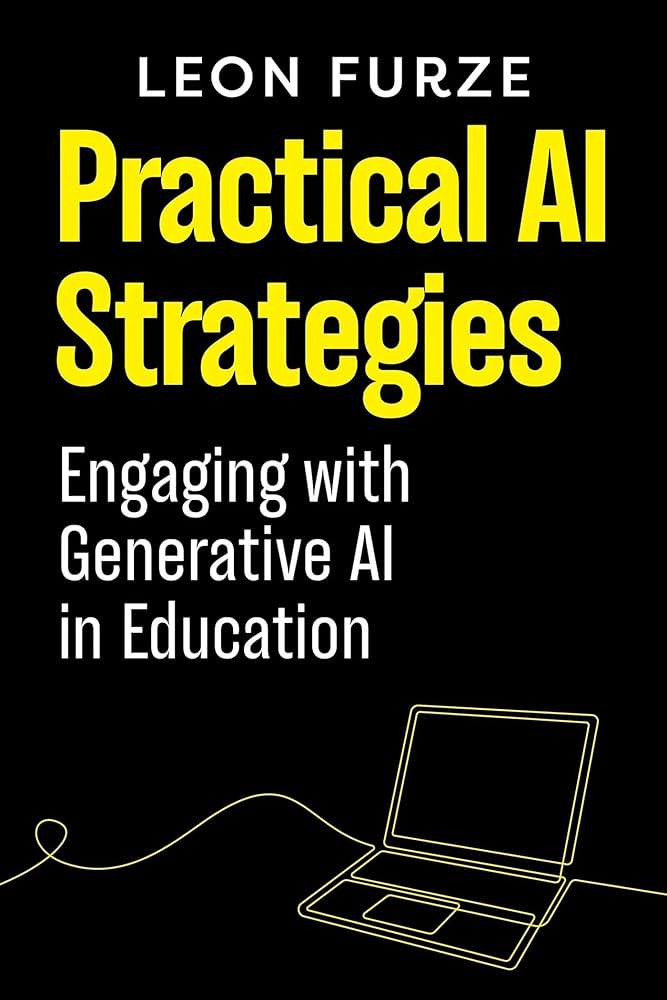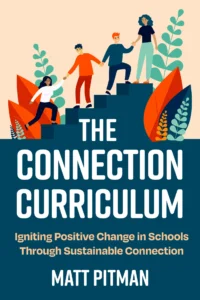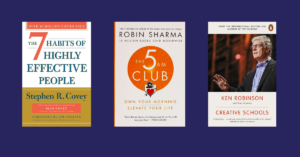Those that have worked with me over the years know that I am a huge tech fan. So when free and easily accessible AI came along, I was an early adopter. I could see its benefits for education straight away. However, unlike previous tech launches, there is no way I could keep up with new AI releases, and very early on, I began to see the challenges with generative AI in education.
Leon Furze‘s “Practical AI Strategies: Engaging with Generative AI in Education” is an invaluable resource that provides educators with the tools and insights needed to navigate this complex terrain. Furze’s book serves as a comprehensive guide for teachers who are beginning to explore the implications of AI in their classrooms.
The book is structured to be highly practical, offering clear, actionable strategies that educators can implement immediately. Furze begins by outlining the current state of AI in education and the potential benefits and pitfalls. He then addresses various aspects of teaching and learning, providing real-world examples and case studies that illustrate the impact of AI tools in the classroom.
For me, a highlight of the book is its focus on assessment, a topic that I have found to be the most talked about among classroom teachers. As someone who is passionate about effective assessment strategies, I found Furze’s exploration of how AI can transform this area particularly helpful. He delves into the ways AI can support more personalised and efficient assessment processes, ultimately enhancing student learning outcomes.
For teachers concerned about the immediate impact of AI, particularly around issues of academic integrity and the authenticity of student work, Furze offers reassuring and practical advice. He provides strategies for leveraging AI to enhance, rather than hinder, the learning process. His insights into how AI can assist in creating more engaging and interactive learning experiences are particularly valuable.
I agree with Furze’s view that the moment students have access to a digital device, we must acknowledge that they can, and increasingly will, use AI. Therefore, unless your task is going to be supervised in the classroom, and probably with pen and paper, you are going to need to rethink the purpose of your assessment.
This book is a perfect starting point for those wanting to understand and harness the power of AI in their teaching practices. It offers a robust framework for thinking about the role of AI in education and equips teachers with the knowledge and tools needed to implement AI effectively and ethically. I highly recommend this book to any educator who is keen to explore the transformative potential of AI in their classroom.





